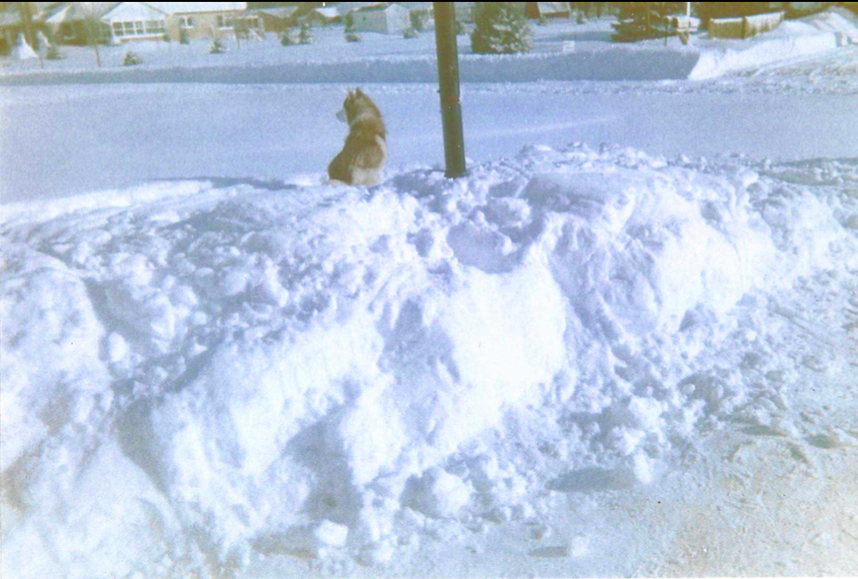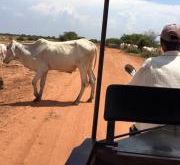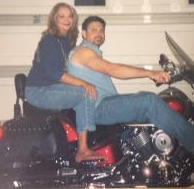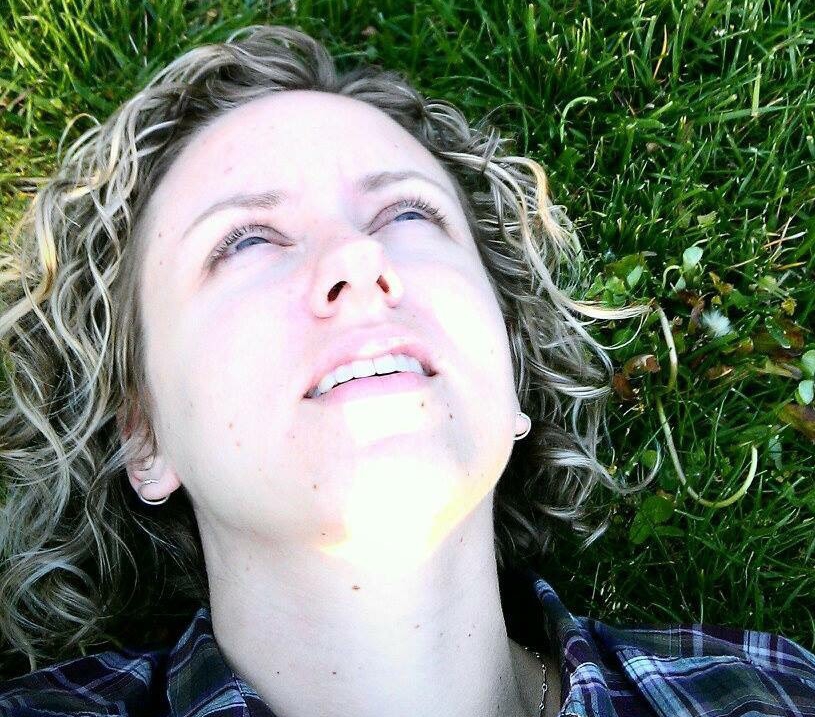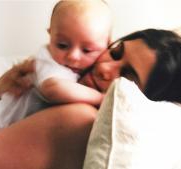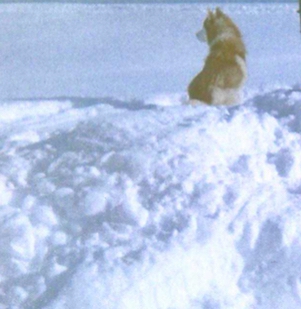We wake to the cold of a winter morning when all is still and dark, when the ancients whisper in our ears, “Stay in the cave.” But those voices are distant now, drowned out by the Weather Channel and coffee maker. Instead of heeding their warning, we defy it.
I’m thankful. No more snow until tonight. I punch the off button as another TV politician makes the same worn crack about global warming. He fails to appreciate that it isn’t just the world warming a couple of degrees, not just the ice caps melting, but the chaotic weather that it brings. It’s the destabilization and unpredictability that wreaks havoc like our unprecedented snowfalls this year, like the huge increase in the number and power of tornadoes and hurricanes, like floods and droughts as rain patterns change. The jet stream has been dipping lower with more regularity than ever before.
“Canada’s warmer than us,” I remark. My husband isn’t listening.
It has been the longest of winters with snowstorm after snowstorm, and it’s still early February. We didn’t have that brief, unexpected warm snap that we expected in January – the one that says, “You’ve put up with this for four weeks with still more to come. Here’s a treat.” Instead, we’d had feet of snow (not inches) and record-breaking cold.
As the garage door rises to reveal four new inches of ice-shellacked snow, my husband limps to his car, saying nothing. I had contracted with a local snow removal service which plowed just yesterday, paying a hundred for the removal and fifty for the salt.
He backs his “snow car” (a junker to absorb dings in icy parking lots) over nature’s new-formed curb, slides down the driveway, and creeps to work. His “good car” sits out in the weather on the ice and under the ice, snow piled high around it...a Maxima sandwich. And though he’s only a couple months into recovery from the surgery which reattached his quad muscle, I know from the set of his jaw that he plans to brave the ice to dig out his baby when he comes home.
“Illogical. Irresponsible. Shoveling with a leg brace on ice when a thaw is predicted in just a couple days? Why risk it?” I say to myself. Then, I answer myself with certainty, “Testosterone poisoning.”
I’d endured his sprained ankles, dislocated fingers, pulled muscles, groans from osteoarthritis. But I’d suffered through his rotator cuff surgery the year before and his knee surgery now. He’s already on a first-name basis with the entire staff of the physical therapy center; I’m not going to let him screw this up.
So I suit up for battle, arming myself with a snow shovel. It’s me against the snow. I pocket my cell phone in case of an emergency because I was once a Brownie Scout leader, and in an age when too few people bother to consider consequences, I look ahead. I estimate a two hour job.
My driveway is an Oreo cookie of ice-snow-ice. Starting from the firm foundation of the garage, I chip at the surface, working my way out. The top crust isn’t bad, but the packed bottom doesn’t yield. Within fifteen minutes, I trade my dented snow shovel for a garden spade.
I shovel the top then chop at the two or three inches of solid ice beneath. A chunk flies exposing the cement floor. Yesterday’s salt has caused just enough of a temperature difference to define the breaking point, proving a single degree can matter. I thrust my shovel along the bottom edge and pry up another chunk which I fling onto the snow pile lining our drive. I force my shovel under tread marks from my husband’s morning passage and follow as far as they’ll take me. The impressions crack and flake like biting into the chocolate of a Dove ice-cream bar. I realize I’ve skipped breakfast, but push on. I clear the length of the driveway first, thinking I’ll do the area behind the garage then his car in hopes the greenhouse effect will melt the ice from its hood and trunk.
But the rising sun only illuminates a sky thick with clouds. My arms feel heavy. There will be hell to pay tomorrow. I promise my back a heat patch. I toss shovelfuls of small chunks onto the pile and lift the larger ones by hand. The snow is heavy, good for snowballs and heart attacks. With each blow, a slab pops up exposing the bare drive beneath, encouraging me to continue.
Except for my driveway, the rest of the world is white and quiet. Though we’re far removed from the mammoths that once roamed Ohio and the glacier that covered and flattened this land, I imagine how the ice age bleached the world. The chopping of ice and scraping across cement are the only sounds in our neighborhood. Rhythmic. Like a pulse, though not as fast as mine.
I check my cell phone for the time. Two hours have passed. I see snow everywhere. Every drive. Every street. The county hasn’t plowed since yesterday, but they won’t waste their precious salt on a residential neighborhood. Budgets are tight. We may not have one pass today.
I marvel at the silence. Those who work are gone and those who don’t wisely stay inside. Not even the neighborhood children who made snow-angels, then snowmen, then snow forts, brave this weather. Perhaps they’ve grown tired of the endless white and abundant snow. I chop to the edge of the turnabout, hitting grass when I go too far. My shovel is so honed against ice and cement, its edge gleams.
Won’t my husband be surprised? I retrieve a snow brush from my car and scrape the windows of his Maxima, then gently pry a corner of the ice from the trunk. It slides off in one piece. I drag the slab to the edge of the pile, estimate its weight, and leave it. Leaning. The hood isn’t as cooperative, but I manage to clear it as well. With just a little more work….
My world is white. From an overcast sky to ice-laden trees to glazed streets and yards and sidewalks and drives. I’ve never seen the like and never want to again. Though I have to admit, it is breathtaking. The white remains unbroken, except for my driveway. It’s way past lunch.
Then I hear it. The sound of spring. A very, very sad spring. A robin perches not twenty feet away in my Pink Princess cherry tree long since stripped of its cherries. He chirps as if talking to me. It’s the first robin I’ve seen this early in February...ever.
I lean on my shovel as I scan the trees and bushes, but there’s no life in sight. He’s alone.
“You surely didn’t come by yourself. Where is your flock?” It isn’t unusual to see robins in mid-to-late February in central or southern Ohio. But this is northwest Ohio and it’s been the year from snow hell where piles of snow are the only relief from its flatness. The temperatures have hovered around freezing.
“You know there is early, then there is too early. If you have any sense, you’ll turn right around and head south for a couple more weeks. Maybe a month. Though I have to admit, you’ve made my day.”
The puffed up bird tips his head, eyeing me now that I’ve noticed him. It doesn’t take an avian expert to see he’s in distress...fluffed, feathers dirty and in disarray. Florida or even Columbus is out of the question. At least my piles will provide access to a snow drink; beaks can’t penetrate this ice.
His chirp is sharp; I’m sure it’s meant for me. Who else since the world is abandoned? I put down my shovel. My husband’s car can wait.
“What do you eat during the winter? Hibernating bugs? Seeds? Fruit?” I ask.
He chirps again as if answering me.
Bird seed I have in spades, having bought the jumbo bag of gourmet cockatiel food for my love bird who’d died last fall. I have nuts and fruit for my homemade granola. I remind myself that he is sitting in a cherry tree.
“Stay right there.”
With renewed energy, I rush in to uncrate bottled water from its base. Its shallow cardboard box becomes an appropriately unthreatening dinner plate with no flaps to frighten him in the slight wind. Millet, cracked corn, safflower seed, dried carrots, shelled peanuts. It’s a bounty for a hungry bird. I sprinkle raisins, dried cranberries, and cherries on top. There should be plenty left for his starving companions, if he has any.
He’s still there. Waiting. I place the box at the edge of the turnaround where a little grass peeks out. I turn my back to the robin, hoping he’ll fly down to explore if he’s ignored. He doesn’t, though he occasionally chirps at me. And I answer back. And so we chat, united against the elements.
I inspect the drive critically. There’s a little more to do, but I’m not sure it’s worth the effort. “That weatherman had better be right or I’ll be mightily upset.”
Right on cue, the robin chirps loudly as if agreeing.
Having freed my husband’s car from the grip of ice, I reason I’ll have to leave for the robin to feel secure enough to eat. Besides I need to buy some salt and should run that car. “I’ll be right back. So, have at it.” I back the Maxima down the drive, avoiding the turnaround.
The store is only a few blocks away. There is no traffic, but the roads are slick. I load up with table salt, a more realistic size for me to handle than the forty pound bag of road salt that my husband purchased at the discount store. On my return, halfway down our street, I spot a dark smudge on the cleared cement near the box. I imagine a cluster of feeding birds, but there’s no place to pull over on a street narrowed to an alley by piled snow. Nearing, I realize a single bird sits there. As I inch up the driveway, it raises its head and straightens.
“My God, a red-tailed hawk,” I whisper. I’d never thought I’d get so close to one. I lower my window to better view its raw elegance. The hook of its black-tipped beak, the gleam of golden eyes as I approach. I wonder how close I can get before I scare it off.
Fearless, it stands firm though I stop only a yard or two away. It stares no longer at the car, but directly at my eyes, as if trying to read my thoughts or puzzling why I’m there. From the sleek brown feathers of its wings and light, mottled down on its chest, to its arrow-like head and rusty tail feathers, like a prize-winning thoroughbred, it knows it’s special.
An even brighter hue draws my gaze away from the hawk’s tail. Red feathers peek between its talons. My robin, pinned to the exposed cement, doesn’t move or chirp for my help. His head is twisted away from me at an unnatural angle.
Coldness grips my gut as the wintry breeze fluffs the hawk’s soft feathers and pale breast and stirs a rosy down feather trapped in its curved beak. I meet its golden gaze again, wondering what it reads in mine that causes it to shift its grip, gather itself, and spring into the air. I watch it speed southwest, higher, and even higher, shrinking into a dark speck against the clouds. I’m alone again.
I feel played by nature. Used. Humans, in their arrogance, think they rule the world, think they are changing it, but the primitive laws of nature remain unchanged. I tried to save my robin; instead, I’m directly responsible for serving him up to a hungry hawk. The irony is not lost on me. I had taken a personal pledge to “do no harm” long before my professional career required it. A life is a life no matter what shape it takes. What does the Earth care? Energy can’t be destroyed; it merely takes another form. “But not a spring robin, I’m guessing.”
I note how much the robin had eaten. At least he didn’t die hungry. I sprinkle salt over the entire drive. What my will is too weak to finish, chemistry will. I’m sure my husband will scold for overdoing. I blame myself for luring the robin out of his shelter into the open. I return to mine. How could I have been so naive?
Turning my back on the real world, I am greeted by walls of flowered paper and the whir of a furnace. I place a single red feather under my potted bonsai...all that’s left. I rinse the coffee pot and let the hot water flow over my icy hands. The warmth sinks its talons through my skin, reminding me that this is where I belong, why we build our fires, why we live in caves.
Ronda Lee Healy is a pharmacist whose training and patients have influenced her character-driven stories and have increased her appreciation of the ironies of life. Though she has written memoirs, short stories, and creative nonfiction, her main interest lies in novels. She is currently working on her second novel in The AECOS Project trilogy. Her short story, "A World Without," was a semifinalist in the Writers Of The Future contest. Ronda and her husband still live in NW Ohio where a red-tailed hawk regularly circles their property.
